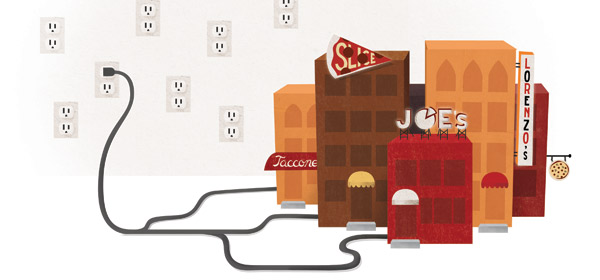story by Dana HenryThe upcoming expiration of PECO’s rate caps on electricity (happening January 1, 2011, in case you forgot) is a mixed bag. On one hand, we can expect PECO’s rates to go up. On the other hand, now that PECO’s rates will no longer be artificially low, suppliers can compete for our business, ending PECO’s longstanding monopoly.
While PECO will remain our local distributor, Pennsylvania’s Electricity Generation Customer Choice and Competition Act of 1996 gives us, the consumers, the right to choose from over 150 licensed Pennsylvania electricity suppliers. So, how can businesses manage that choice? Enter Philly Buying Power (PBP).
An initiative created by Mayor Nutter, PBP launched on October 27, 2010. The program is managed by Taylor Consulting and Contracting, and aims to ease the burden of utility spikes on the Philadelphia business community. While large corporations with massive energy demands will, no doubt, benefit from wholesale supplier competition, small and medium-sized businesses are likely to be excluded. Their energy demands simply aren’t large enough to warrant competitive prices. With PBP, business can be aggregated, creating the industrial-sized energy demand that results in lower rates. A lone pizza shop might not be able to do much bidding, but, if all the pizza shops in Philadelphia combine their “buying power,” they suddenly become as powerful as Papa John’s. “We go to Costco and Sam’s Club because we know that buying in bulk gives us a better price per unit,” explains Chris Booth, vice president of PBP. “Why not apply that same concept to our commodities?”



